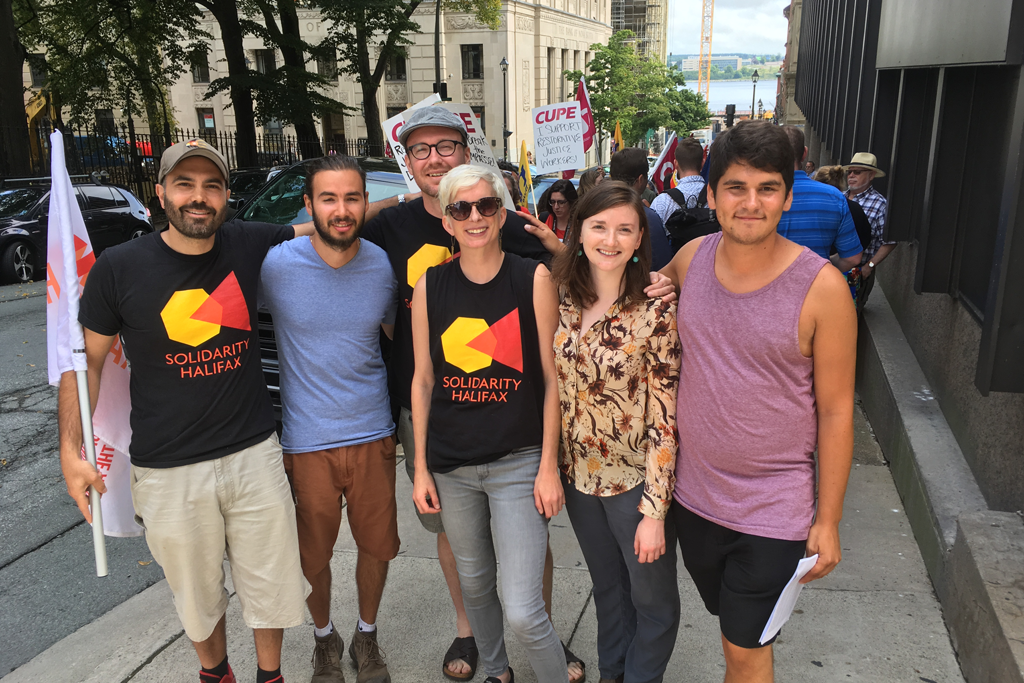Restorative justice caseworkers in Halifax went on strike starting on July 30, 2018. These caseworkers are the heart and soul of the Nova Scotia’s Restorative Justice Program.
The Restorative Justice Program brings people accused of a criminal offence, victims, and community members together to find resolutions to crime that do not involve going to prison. The program is a progressive move away from mass incarceration that both honours victims and prioritizes rehabilitation. The initiative is of particular value for Indigenous and African Nova Scotian people, whose communities are disproportionately criminalized.
The Restorative Justice Program was originally intended for youth when it opened in 1999 but it has been so successful that in 2016 the Province expanded its mandate to include adults. The McNeil Liberals, however, failed to provide new funding to support the program’s expansion. As a result, the Community Justice Society of Halifax Region – the non-profit which handles 70% of Restorative Justice Casework in Nova Scotia – saw its total case load more than double from 248 in 2016 to 617 in 2017. The absence of new funding for caseworkers has meant the Society has been unable to hire new frontline workers or to compensate employees in proportion to their ballooning workloads.
It seems that the more the Liberals trumpet their commitment to Restorative Justice, the worse conditions have become for caseworkers on the ground. The Canadian Union of Public Employees Local 4764, which represents caseworkers in Halifax, claims that the salaries of their predominantly female membership have remained stagnant at just under $38,000 per year for over a decade. By comparison, the Union points out that Probation Officers, who are mostly male and do very similar work, make an average of $66,000 per year. The inadequate pay and large increases in workload have led to a 100% turnover rate amongst caseworkers. The Province has driven caseworkers onto the picket line.
The Department of Justice has responded to the strike by pretending that it has no interest in the dispute. This is a dubious dodge. The Community Justice Society receives 100% of its funding from the Province, its mandate is substantially dictated by the Province, and caseworkers’ workloads are effectively set by the Province. The Department of Justice has created a situation in which the Community Justice Society functions as a contractor, while maintaining the appearance of independence.
The outsourcing of public services is a weapon in the arsenal of neoliberal governance. Similar legal fictions are maintained by government in other branches of the social service sector. Frontline workers labouring in long-term care facilities, supportive housing facilities, transition homes, homeless shelters, halfway houses, and many other nominally independent non-profits are well aware of this farce. Contracting-out is an austerity strategy that is designed to break unions, lower wages, and, ultimately, to absolve the capitalist class from their responsibilities to support the living standards of the people.
Support Restorative Justice Caseworkers by contacting the Minister of Justice, Mark Furey, to demand that he respect pay equity. Tell him that a proper Justice Minister should model Restorative Justice practice by taking responsibility for his actions and by making restitution to those whom he has harmed.
Mark Furey, Minister of Justice
Phone: (902) 424-4044
JUSTMIN@novascotia.ca
